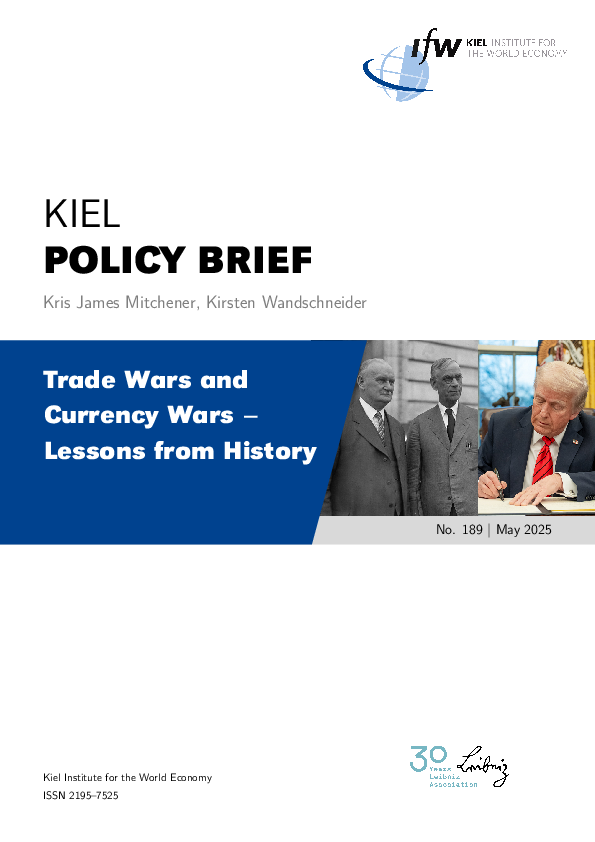Authors
Publication Date
Key Words
Related Topics
Tariffs
USA
Economic & Financial Crises
International Trade
Explaining President Trump’s “Liberation-day” tariffs on April 2nd, 2025, Stephen Miran, President Trump’s chairman of the council of economic advisors suggested that countries accept the U.S. tariffs without retaliation to come to a fair “burden sharing”(Miran: 2025). History shows that this assumption is wrong: using a detailed data set of bilateral trade flows constructed for the interwar period, this column shows that in fact the US faced substantial and widespread retaliation from trade partners in response to the U.S. Tariff Act of 1930 (i.e., the Smoot-Hawley Tariff). U.S. exports to retaliating countries fell by as much as 33%, with U.S. trade partners specifically targeting high-end, branded consumer products, such as U.S. autos. The drop in trade contributed to the Great Depression, which in turn triggered a large currency war: between 1929 and 1936, 70 countries devalued their currencies relative to gold. We show that trade was further reduced by more than 21% following devaluation. The currency war destroyed the trade-enhancing benefits of the global monetary standard, ending regime coordination and increasing trade costs. The 1930s are a potent reminder of what can happen when international policy coordination breaks down and countries go it alone when negotiating trade and exchange-rate policies.






